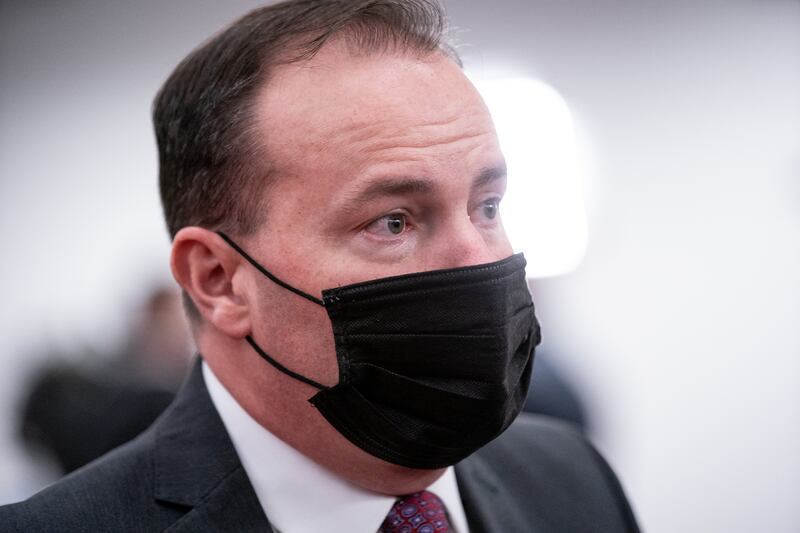More than a year before Utah’s 2022 midterm primary elections, potential candidates are already considering running for office. One race in particular for the U.S. Senate seat currently held by Sen. Mike Lee has amassed nine rumored or announced potential challenger candidates — and that’s only on the Republican side.
Longtime political commentator LaVarr Webb recently called the large number of Republican challengers to the incumbent Lee “remarkable” when the list of possible challengers was only five. Now that the list has grown to nine, the number is nothing short of astounding. It begs the question: Why are so many Republicans looking to challenge Lee?
To give some perspective, former Sen. Orrin Hatch had only one primary challenger in his 42 years in office. When Mitt Romney ran for Senate in 2018, some viewed him as a Massachusetts carpetbagger, yet only one Republican ran against him. Nine potential challengers, this early, is unheard of in Utah and amounts to a groundswell — not only of challengers interested in unseating Lee, but also of the numbers of Republicans rallying around each potential candidate, asking them to run and pledging their support.
Competition in elections is healthy and important. Having multiple candidates in a single race inspires voters to participate in our great democracy by evaluating the job an incumbent is doing and deciding if there may be a better candidate to represent them. In that way, competition holds elected officials accountable.
In competitive races, voters are likely to ask themselves if an incumbent is actually listening to the needs of their constituents. Are they effectively championing legislation to meet those needs? What have they achieved — not only in words, but in actions — while in office? Do those actions serve their own political aspirations more than they serve the people of Utah? In Lee’s case, these are valid questions, and clearly a lot of qualified challengers believe that Republican voters won’t like the answers.
Lee’s consistently low favorability ratings among Utah voters (recently at just 45%) reveal an opportunity for change. In 2012, his relatively low favorability rating was waved off as a sign that he was still relatively unknown. What explains his low ratings now?
The flurry of activity to challenge Lee demonstrates that many Republicans see an appetite for a change in leadership in Utah. This fact is not lost on Republican voters who remember Lee’s 2010 comments in support of term limits if they were instituted across the board, limiting congressional terms to 12 years — the number of years he has already served. Why doesn’t Lee hold himself to the same standard he wishes to see for all congresspeople? And perhaps more importantly, how devoted has Mike Lee been to the priorities of Utahns?
According to the Utah Foundation, the cost and accessibility of health care has been Utah’s top issue throughout the past two presidential election cycles. Other top issues for Utah voters include education, air quality, jobs and housing affordability. Notably, the biggest concern in March of 2020 by a substantial margin was politicians listening to voters. By summer, Utahns also showed great concern about public health and the COVID-19 pandemic, as well as issues around the pandemic.
How has Mike Lee addressed these very real concerns of the people he was elected to represent? Has he effectively championed any legislation at all to meet the needs of Utahns who feel the impacts of these issues in their families and communities daily — especially now with the added pressures and hardships of a global pandemic?
The list of possible Republican candidates looking to challenge Lee ranges from moderate to conservative and from politically involved Utah residents to experienced and well-respected lawmakers like former Arizona Sen. Jeff Flake, former Utah Gov. Gary Herbert and former Utah State Rep. Becky Edwards. When voters compare the achievements from a decade or more of elected office by strong and effective candidates like these versus Mike Lee on Utah’s top priorities, they may welcome a change.
Our elected leaders in Congress are charged with the important task of making policy decisions that impact our everyday lives. Utah voters should take advantage of the opportunity of a competitive U.S. Senate race in 2022 to assess what truly matters to them and which candidate would fight hard to address those issues in Congress.
Andrea Himoff is the co-founder and former executive director of Action Utah, a nonpartisan community advocacy organization empowering Utahns from both sides of the aisle to get civically engaged.

